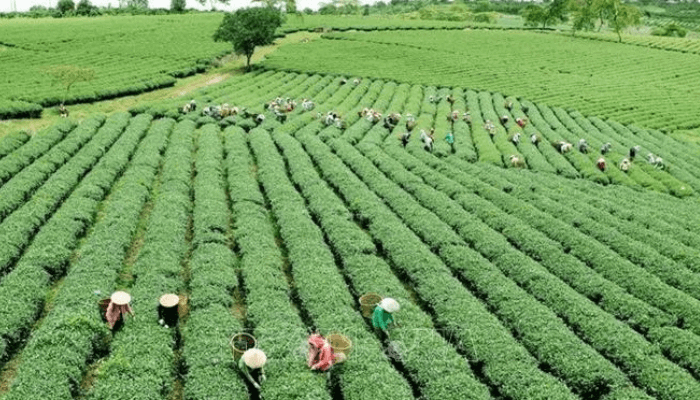Northern Nigeria’s agriculture revival key to beating country-wide hunger
Nigeria must address the challenges limiting agricultural productivity in the North in order to effectively combat hunger and avert a bigger humanitarian crisis, according to a joint report by the World Food Programme (WFP) and the African Development Bank.
Despite vast arable land, Northern Nigeria continues to face high food insecurity, soaring malnutrition rates, and the nation’s highest food inflation, challenges the report links to climate shocks, insecurity, and weak economic structures.
The joint assessment argues that scaling up agricultural investment in the North could be the game-changer needed to tackle Nigeria’s worsening humanitarian crisis and chronic hunger.
“While humanitarian interventions such as food and cash assistance have helped meet urgent needs, they were not strategically designed to strengthen local food systems or support recovery,” the report noted.
It stressed that linking food aid to local sourcing, storage, and processing would have amplified the economic impact within affected communities. “Tying cash transfers to local markets and smallholder farmers ensures money circulates within the region, empowering producers and boosting food supply,” it added.
Read also: FG to disburse N250b Bank of Agriculture loans, insures 250,000 farmers
Currently, more than 31 million Nigerians face severe food insecurity, with about five million concentrated in Borno, Yobe, and Adamawa states. In the same region, nearly 2.3 million people remain displaced by conflict, according to WFP data.
Recent funding cuts by the United States have worsened the crisis, leaving thousands of families without food aid and exposing the fragility of Nigeria’s humanitarian response.
The report also revealed that previous assistance models often benefited markets outside the conflict zones. “Cash transfers and food purchases largely flowed to distant suppliers, bypassing local producers,” it said. “This approach met immediate needs but failed to build resilience or stimulate regional food economies.”
Analysts say redirecting investment toward agro-processing, input supply, and logistics in the North would not only improve food availability in the country but also create jobs and reduce reliance on imports.
The report concludes that integrating humanitarian aid with agricultural investment offers Nigeria its best chance to curb hunger, rebuild livelihoods, and drive long-term food security.
Read also: Taraba gets $268m from ECOWAS to boost agriculture, energy production
Investment opportunities for stronger food systems
The report highlights two critical, high-impact investment opportunities to strengthen Northern Nigeria’s food system, while boosting food security in the country. They include improving on-farm storage to curb post-harvest losses and revitalising local milling capacity in Northern Nigeria to boost food security and stimulate regional trade.
These investment cases are presented as illustrative examples, designed to showcase the scale of opportunities and the potential returns from targeted agricultural investments. They are not prescriptive blueprints, but practical insights into how well-placed capital can address two of the region’s most pressing challenges: widespread post-harvest losses and limited wheat processing capacity.
By tackling these bottlenecks, the WFP suggests that investors and policymakers can unlock significant economic value, strengthen local supply chains, and lay the foundation for a more resilient and self-sustaining food system across the country.
Nigeria’s pathway to progress
To drive sustained growth and build stronger food systems, the report outlines five strategic pathways that guarantee growth and progress of Nigeria’s food systems. These include, aligning humanitarian response with local economies, investing in stability where it exists, building crisis-resilient food systems, embedding long-term thinking in humanitarian action, and applying lessons proactively.
The report stresses that humanitarian efforts must evolve beyond short-term relief to strengthen local systems and livelihoods.
“A crisis response that builds local capacity, supports livelihoods, and aligns with long-term development goals is not just more effective — it is essential to breaking cycles of dependency,” the report stated.
It further highlights that leveraging stable areas in Northern Nigeria for targeted agricultural and economic investments could unlock massive opportunities for recovery. These relatively secure zones, the report argues, can serve as anchors for production, storage, processing, and transport, driving regional food security and resilience.
“These areas represent entry points for transformation,” the report noted. “Ignoring them risks further decline and the loss of valuable opportunities to strengthen both local economies and national food systems.”

